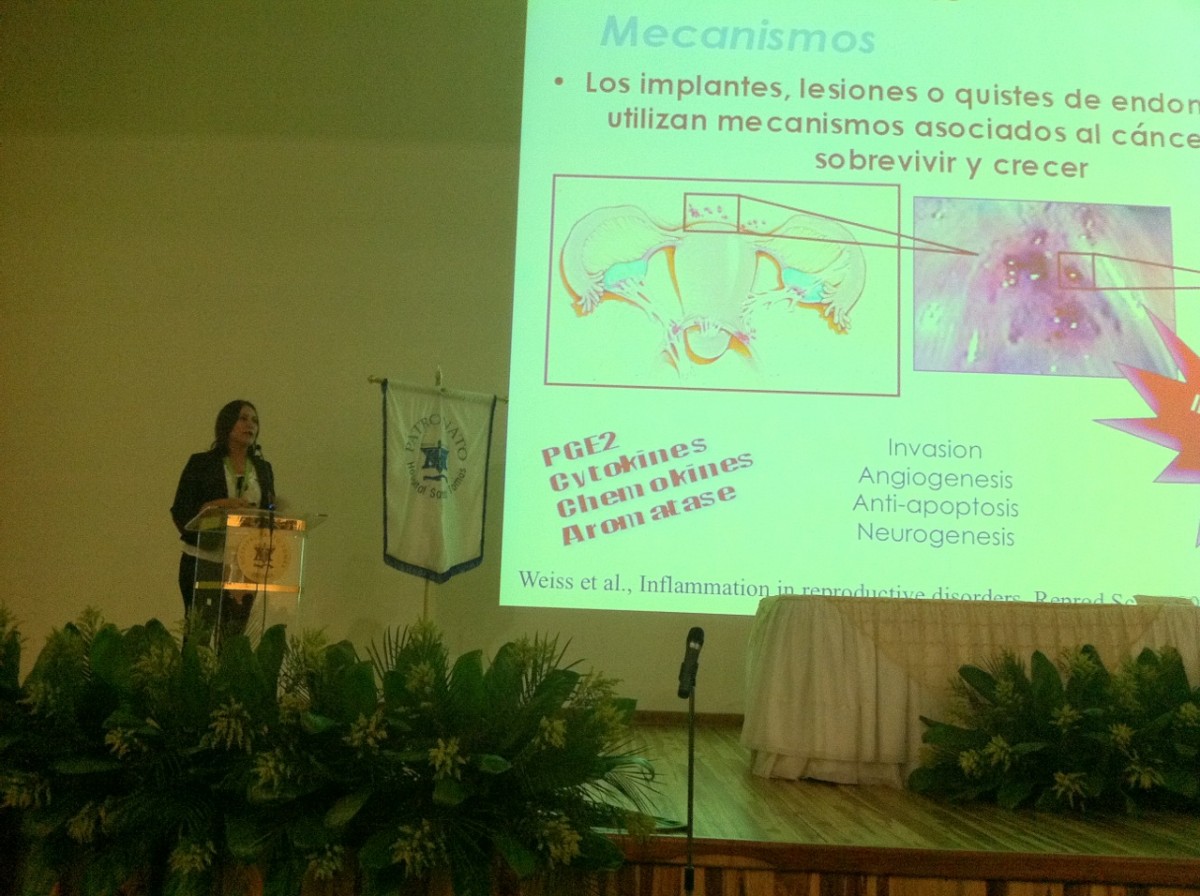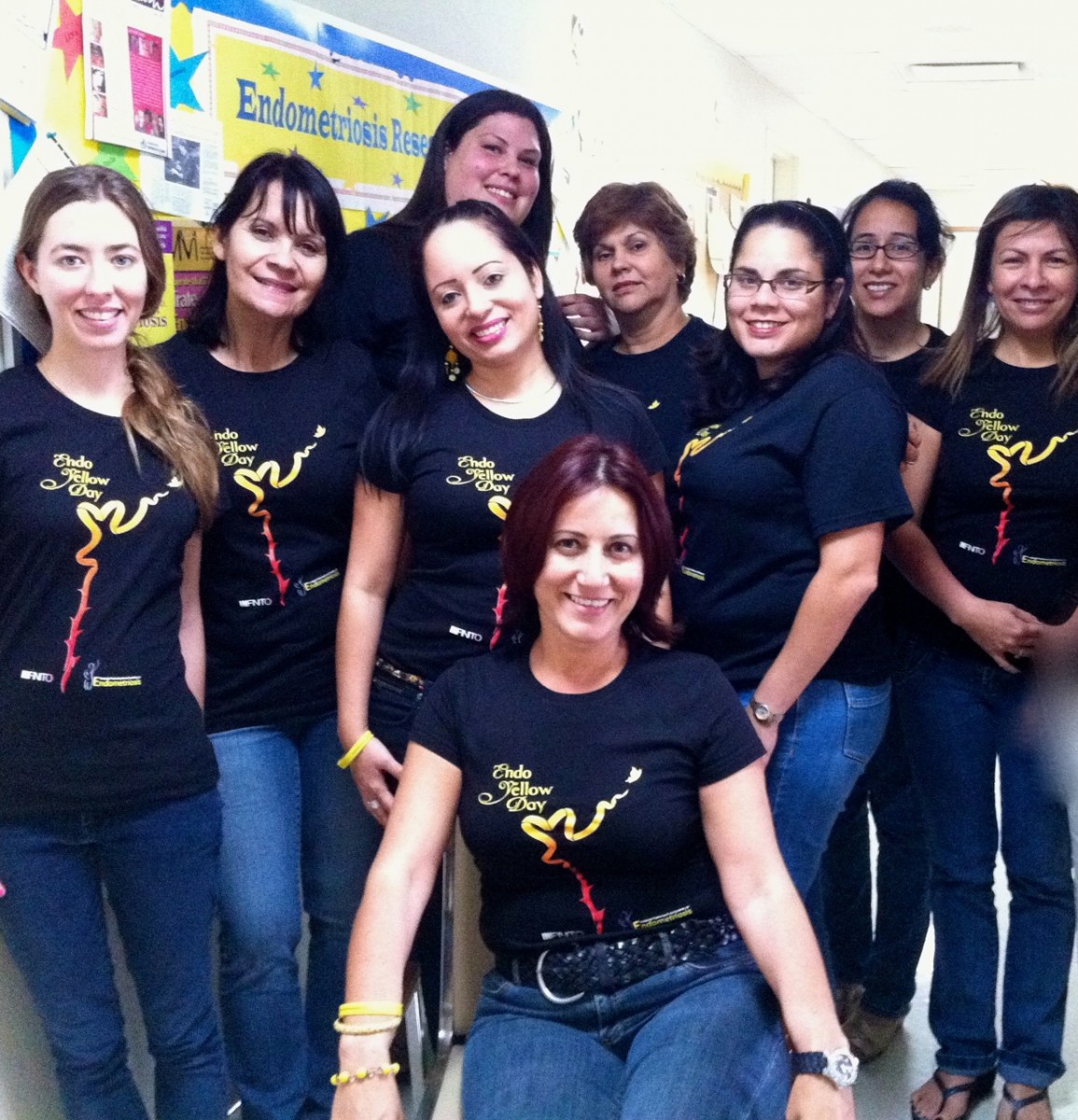Borinqueña, are you considering a career in academia? Be inspired by my story!
Submitted by Idhaliz del R. Flores Caldera on
Borinqueña emphasizes the contribution of Puerto Rican and Hispanic women in science and technology and provides a space to discuss topics of interest about the empowerment of women. In ‘What’s up Borinqueña?’ we share a variety of experiences and perspectives from different women and men that are committed to advancing equality for women in science.
I am from Coamo, Puerto Rico, where I attended the public school system. Early on I was interested in the science classes and I was also quite good in English. Because I was an honor student, everyone thought that I would become a medical doctor, but I somehow felt that being a clinician was not my vocation.
In college I discovered microbiology, and I was simply fascinated and curious about a microscopic world that surround us. It took me some time to understand that studying science was more than just satisfy that curiosity; I could also make significant contributions to society. The understanding that through a scientific career I could also impact health, not of a single individual, but of a whole patient population, was indeed a great motivation. I went on to study a PhD in molecular genetics at Rutgers University, New Jersey, after obtaining a BS in Industrial microbiology at University of Puerto Rico-Mayaguez. The time showed that I had tenacity, auto-motivation and critical analysis capability needed to be successful, or at least happy, in this profession.
There were barriers. The first one was a general lack of information regarding pursuing a PhD in Science. I feel fortunate for I had excellent role models in college, who motivated me to apply for summer biomedical research programs in the United States. I would have never known about such opportunities on my own! Today there is so much more information available, and many universities have programs that fund the development of Studies with interest in the biomedical and biological sciences. As an undergraduate research intern I had learned some very basic research skills; although it was a very general experience it showed that I could study in the U.S. At Rutgers I had to learn fast, from scratch, many different techniques and general laboratory applications, from using a pipette, to growing cells, to finally cloning genes and conducting experiments using animal models. The biggest barriers that I had to tackle were conversational English, and a lack of knowledge on basic principles of experimental design, scientific writing, and statistics. All those deficiencies I could surpass quit rapidly with the help of mentors and lab partners, also on my own by being autodidactic. Finally, living far from my family, friends and my island for six years were great challenges. {Learning point 1: identify your deficiencies and limitations; focus on surpassing them}
After my training in molecular biology of cancer, and later applied to HIV and asthma, a personal health situation led me to reconsider my research focus: women’s health, and in particular reproductive health. One of the most surprising finding of my research on endometriosis and infertility was the lack of research and knowledge in those conditions, the fact that these were seldom discussed openly, there was an aura of mystery, myths and taboos associated with both conditions. I quickly recognized this as a scientific niche in wish I could contribute to substantially. {Learning point #2: Find your niche and your passion}

I was very lucky when I decided to return to Puerto Rico. I obtained right away a position as professor at the Ponce School of Medicine (PSM). When I decided it was time to come back, I sent my CV to industry and to all medical schools in the island. PSM answered very quickly: a professor in the Microbiology Department was retiring; they needed someone to fill that position as soon as possible. I was at the right place at the right time. However, accepting that position had a great responsibility attached to it. I had to prepare myself to teach a very specialized topic to medical students. My PhD program had not prepared me to teach at such advanced level. I confronted that challenge with great determination and focus. In preparation for my class I attended other lectures at the University of Puerto Rico and the Catholic University of Puerto Rico; I interviewed other professors on how to prepare for teaching and I read all I could find about the topic. In six months, I taught my first class to medical students and I emerged feeling accomplished and stronger after seeing that I was able to teach them all that I had learned in the past six months {Learning point #3: a PhD education teaches you to be auto-didactic}.
So, for all those women who aspire for a career in academia and be successful in research, the key is to learn how to best use your time and to develop a support group. It is crucial to identify the times where we are most efficient. Your support group (spouse, partner, mother, sister, friend) will be of great value especially in those times when you need to put in extra hours writing grants, papers or preparing lectures, and when you travel to scientific meetings. Finally, choose your research topic following your heart; you must be passionate about it, since it will be the motor that will move you forward despite the challenges which are inevitable. We are fortunate today of having so many role models in science; hard working, passionate women that have engaged in multiple roles: spouses, mothers, entrepreneurs, consultants, and volunteers. You must have it clear that you can be successful at the professional and the personal levels. In my case, I decided against the labels: I do not see myself as a “Puerto Rican female scientist” (some exotic, rare species) but rather as a scientist who strives to reach excellence. Then, I wake up every day with the certainty that I can face the challenges of the day and that I will fulfill my obligations effectively. At the end of the day there will be many things in the To Do list that were not completed, and that is ok. They will still be there tomorrow to be worked on with renewed energy and conviction. {Learning point #4: You too can succeed: manage your time; find you support system; aim for excellence}
In general, my experience in academia has been positive. I have felt that I am supported professionally, although there is room for improvement so that there is a work environment that is more sensitive to the needs of women (and men!) who fulfill multiple roles. In my current academic position, I feel comfortable; my individuality, research interest and academic criteria are respected. It would be of great value to have additional resources to facilitate our day-to-day work and help us navigate the complex academic system in which we exist (Flexi time, professional development, mentoring system, child care). Also, it will be welcomed that we are not evaluated only by the number of publications and grants but also by our excellence in other areas that are not valued as much: students trained and mentored, community outreach activities). I would not change anything in my academic path. I learned important lessons along the way: to minimize my deficiencies (my accent) and maximize my strengths (passion for reading and writing, auto motivation). I learned to take advantage of my situation: I procured my scientific development but also sought personal and cultural growth, benefiting from living so close to New York and meet students from around the world. I learned to grow a support group that was critical for helping me through the difficult times of living in the exile. {Learning point #5: there are many lessons along the way, many opportunities for personal growth: embrace them!}

I feel fortunate that today I have a meaningful job that is different every day and that it forces me to utilize my intellect to solve quickly and effectively the many situations that I must face every day in my different roles, as professor of future medical doctors and scientists, writer, grant administrator, evaluator of ethical issues in research, leader of a biobank and patient advocate. {Learning point #6: A career in academia is fulfilling, dynamic, full of challenges and therefore never boring! It will give you enormous satisfactions and reasons for pride, as you see your disciples excel and teach others, in a never-ending chain of knowledge sharing.}
You can follow Idhaliz on Twitter @zilahdi. Share this story using #Borinqueña and do not forget to visit our store.









